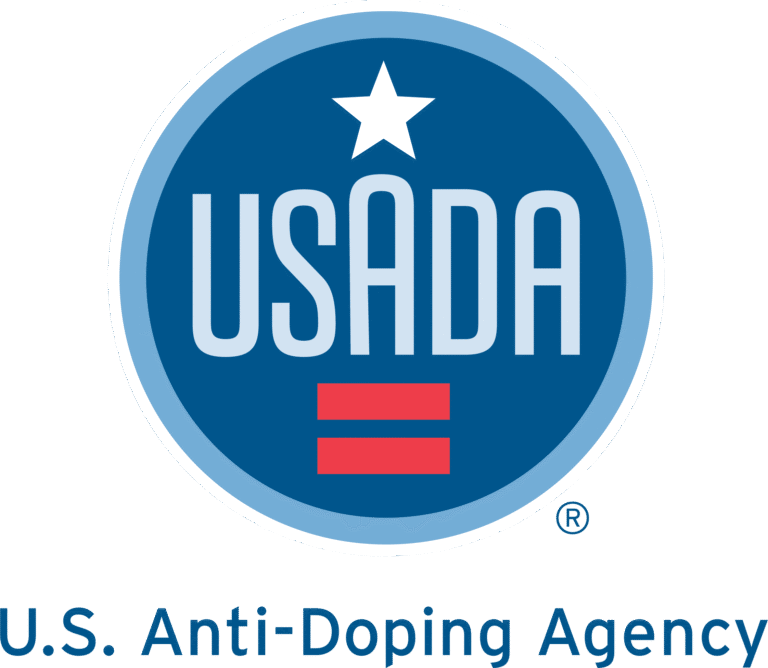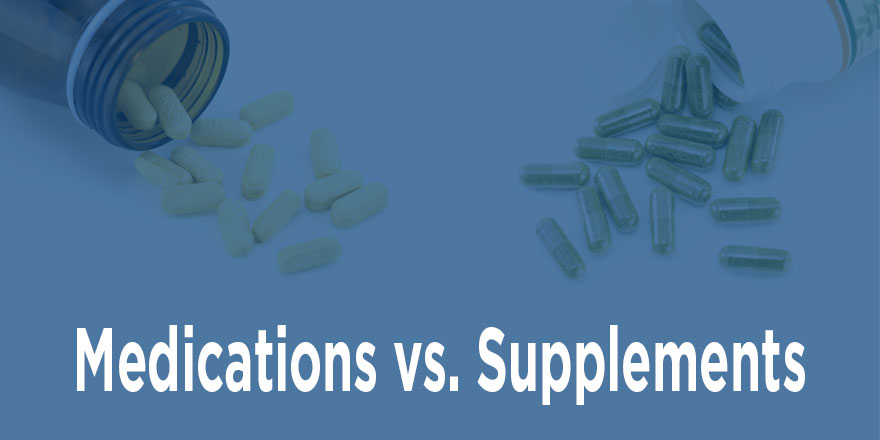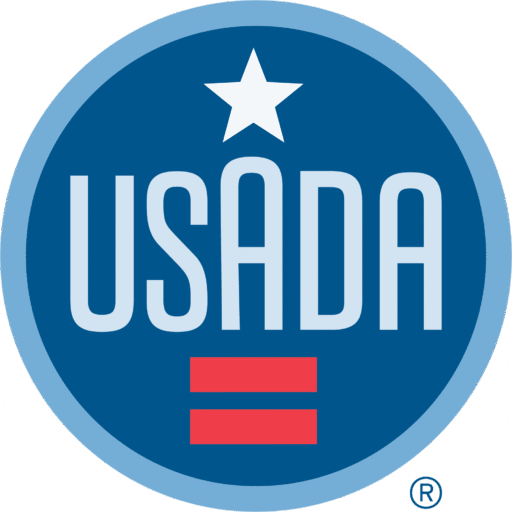Given that they are both used for health purposes, it would be easy to assume that medications and supplements are regulated the same way and produced to the same standards, but unfortunately this is not the case. Unlike medications, supplements are regulated post-market, which means that no regulatory body evaluates the contents, safety, or efficacy of supplements before they are sold to consumers. Take a look below to learn more about the many differences between medications and supplements, and how those differences make supplements risky for athletes.
MEDICATIONS
FDA Oversight and Review
The U.S. Food and Drug Administration (FDA) conducts a comprehensive evaluation of medications, assessing the design of pre-clinical and clinical trials, the manufacturing and quality control standards, the packaging, directions for use, and black box warnings around the potential hazards.
Reliable Ingredient Labels
Medications must list every active ingredient on the Drug Facts label, and these ingredients are confirmed through quality control monitoring by the FDA.
Known Efficacy and Safety Profile Before Sale
Medications must undergo a rigorous safety and efficacy evaluation process before reaching consumers. Importantly, not only is it necessary to prove that a medicine works, but the side-effects must also be very well documented so that consumers understand what kinds of effects they might experience when using a certain medication. Doctors and patients together can weigh the benefits and risks of using a certain medication and make an informed choice about its use. As a regulatory authority, the FDA is responsible for ensuring the accuracy of information on medications, such as the product’s properties, claims, indications, dosage, contraindications, warnings, precautions, adverse reactions, and more, as well as reviewing data from clinical trials, toxicology, and patient information. For some over-the-counter (OTC) drugs, a product monograph (a detailed scientific document) can also outline the rules and guidelines for acceptable ingredients, dosage strength, and labeling.
Eliminate Your Anti-Doping Risk with Global DRO
Global Drug Reference Online (Global DRO) can give you a concrete answer about the anti-doping status of a specific medication. If your medication is prohibited in sport, you can apply for a Therapeutic Use Exemption (TUE) to use your otherwise prohibited medication. Get started at GlobalDRO.com
SUPPLEMENTS
No FDA Review
Supplements don’t undergo any evaluation process or testing by the FDA before they are made available to consumers. In fact, most supplement companies are never inspected by the FDA to ensure manufacturing best practices.
Unreliable Ingredient Labels
Manufacturers may misidentify prohibited substances on Supplement Facts labels, or they may fail to list prohibited substances altogether. Many dietary supplement companies market products that contain unlawful ingredients that are not actually allowed in supplements.
Unknown Efficacy and Safety Profile
Because they are regulated post-market, the FDA only takes action if someone is made sick or is harmed by a supplement. Many companies do not report side effects or complaints from consumers to the FDA, even though they are legally supposed to. Furthermore, dietary supplements do not have to be proven to work in order to be sold, so athletes should beware of the puesdo science claims that are often used on packaging!
Minimize Your Risk with Supplement Connect
Supplement Connect offers various tools to help athletes realize, recognize, and reduce supplement risk, including a High Risk List of examples of products containing prohibited substances.
More questions?
For questions about specific products, substances, and methods, contact USADA’s Drug Reference Line at drugreference@USADA.org or call (719) 785-2000, option 2.








